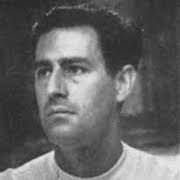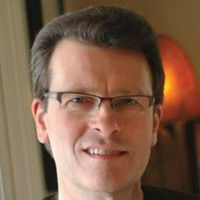Samuel Barber, photographed by Carl Van Vechten, 1944
Samuel Osmond Barber II (March 9, 1910 – January 23, 1981) was an American composer, pianist, conductor, baritone, and music educator. One of the most celebrated composers of the 20th century; music critic Donal Henahan stated, "Probably no other American composer has ever enjoyed such early, such persistent and such long-lasting acclaim." Principally influenced by nine years of composition studies with Rosario Scalero at the Curtis Institute and more than twenty-five years of study with his uncle, the composer Sidney Homer, Barber's music usually eschewed the experimental trends of musical modernism in favor of utilizing traditional 19th-century harmonic language and formal structure that embraced lyricism and emotional expression. However, elements of modernism were adopted by Barber after 1940 in a limited number of his compositions, such as an increased use of dissonance and chromaticism in the Cello Concerto (1945) and Medea's Dance of Vengeance (1955), and the use of tonal ambiguity and a narrow use of serialism in his Piano Sonata (1949), Prayers of Kierkegaard (1954), and Nocturne (1959).
Adept at writing both instrumental and vocal music, Barber's works became successful on the international stage and many of his compositions enjoyed rapid adoption into the classical performance canon. In particular, his Adagio for Strings (1936) has earned a permanent place in the concert repertory of orchestras, as has that work's adaptation for chorus, Agnus Dei (1967). He was awarded the Pulitzer Prize for Music twice: for his opera Vanessa (1956–57) and for the Concerto for Piano and Orchestra (1962). Also widely performed is his Knoxville: Summer of 1915 (1947), a setting for soprano and orchestra of a prose text by James Agee. At the time of Barber's death, nearly all of his compositions had been recorded. Many of his compositions were commissioned or first performed by such noted organizations and artists as the Boston Symphony Orchestra, the Philadelphia Orchestra, the New York Philharmonic, the Metropolitan Opera, Vladimir Horowitz, Eleanor Steber, Raya Garbousova, John Browning, Leontyne Price, Pierre Bernac, Francis Poulenc, and Dietrich Fischer-Dieskau.
While Barber composed a significant body of purely instrumental music, two-thirds of his compositional output was dedicated to writing art songs for voice and piano, choral music, and songs for voice and orchestra. Some of his most frequently performed songs include both the solo voice and choral versions of Sure on this shining night (solo version from 1938 and choral version from 1961) with text by Agee and the song cycle Hermit Songs (1953) with anonymous texts by Irish monks from eighth through the thirteenth centuries. This emphasis on sung material was rooted in his own brief career as a professional baritone in his 20s which inspired a life long love of composing vocal music. Barber recorded his own setting of Arnold's "Dover Beach accompanying his own singing voice on the piano in 1935 for NBC, and was also featured weekly on NBC Radio in 1935-1936 in performance of German lieder and art songs.He also occasionally served as conductor for performances and recordings of his works with symphony orchestras during the 1950s and had a brief career teaching composition at the Curtis Institute from 1939-1942.
Barber was in a relationship with composer Gian Carlo Menotti for more than 40 years. The two men lived at Capricorn, a house just north of New York City, where they frequently hosted parties with academic and music luminaries. Menotti served as Barber's librettist for two of his three operas. After the relationship ended in 1970, the two men remained close friends until Barber's death from cancer in 1981.







































